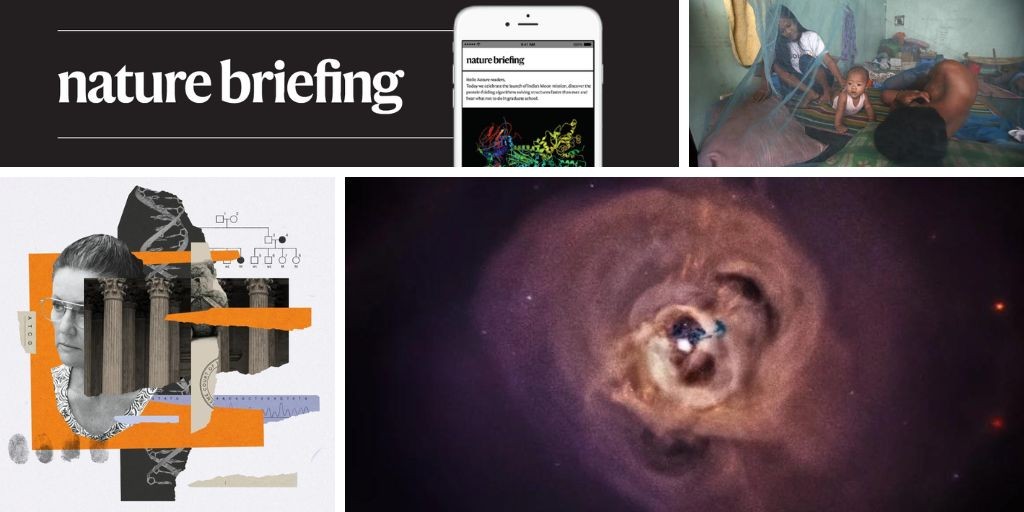The role of vaccines in dengue infection: A case study of the association between vaccines, the immune system and the risk of ADE
UN report calls out companies that invest in fossil fuels, buy shoddy carbon credits and lobby against climate policies. Plus, a new vaccine for dengue how scientists can learn to better inform policy decisions.
Some researchers are concerned because they don’t know what the vaccine is going to do. Studies suggest that after dengue infection, the immune system is hyped up enough to protect against a second infection with any serotype for one to two years — a phenomenon that is mimicked by vaccines, says de Silva. But after that period, people are protected only from the serotype to which they were first exposed, and are at increased risk of ADE when infected with other serotypes. There is a possibility of a similar phenomenon if a vaccine that does not protect against all four strains of the same sexually transmitted diseases is used, according to an Epidemiologist at the US National Institutes of Health.
Nature News: Climate Change, High-Energy Scientific Reporting and the Case for a Sister in a Family: Scientific Impact of Genetic Causes of Disease
Starting on Monday, I’ll be at COP27 in Egypt with the Nature News team as the conference enters a gruelling period of hard negotiations. We would like to hear your views about climate change, the summit and how science plays into the political process. Your comments might feature in future stories or help us to shape our coverage. Please e-mail me at at [email protected].
Kathleen has been in prison for 19 years after the deaths of her four infant children. She was convicted of killing them in large part because it was deemed improbable that so many children in one family could die of natural causes. This month, researchers will present evidence suggesting that she should be released, because two of the children inherited a genetic mutation that might be linked to sudden death. The evidence is so complex that the Australian Academy of Science has been called in to act as an adviser. The case reaches beyond one family’s nightmare: it will touch on how science weighs the evidence for genetic causes of disease, and how that fits with the legal system’s concept of reasonable doubt.
Evidence and technical expertise are not enough to change decision-makers’ minds. According to Dewey Murdick, who trains researchers to be policy analysts, researchers need a deep understanding of how policies are made to be prepared to spend time and money working with policymakers to shape policy.
Source: https://www.nature.com/articles/d41586-022-03672-x
Sonification of Space Telescope Data to Support Detection and Prevention of Dengue: The Impact on Environment and Conservation Laws in the Developing Countries
Soundscapes are created based on the data of the James Wilkins Space Telescope. New research shows that sonification — when data is rendered as audio — is also useful. As well as making astronomy more accessible to people who are blind or have low vision, it can help scientists to better identify patterns in large astronomical data sets. “The work demonstrates that efforts to boost inclusivity and accessibility can have wider benefits,” argues a Nature editorial, calling for more rigorous evaluation of the technique.
Environmental-law scholar Paulo de Bessa Antunes, who fought the administration of Jair Bolsonaro in the courtroom and has prosecuted many environmental cases in Brazil, says he is optimistic about the ability of incoming president Luiz Inácio Lula da Silva to protect Amazon forests. 7 min read by Scientific American.
Indonesia will be using the jab from next year, but some scientists say there are insufficient data to rule out that it could make infections worse in some people.
Dengue has four distinct ‘serotypes’ (DENV-1, DENV-2, DENV-3 and DENV-4) and protection from any two of them is needed to reduce the chance of serious disease. After a second infection, or vaccination followed by a breakthrough infection, people are typically protected against all four.
In the third year after their jab, the individuals without previous infections were protected against DENV-2 but did not have protection against DENV-1 orDENV 3. There weren’t enough cases to see if the vaccine could be used to protect people who hadn’t previously been affected by the disease.
In mid-October, a committee at the European Medicines Agency recommended that the vaccine be approved for people aged four and older in Europe and dengue-endemic countries outside the European Union. The European Commission has yet to announce its decision.
The episode caused a huge backlash in the Philippines against vaccines in general, says Katzelnick. Not being cautious with this has negative consequences.
The data only provide evidence for the vaccine having lasting protecting against one serotype, says de Silva, which means it’s possible that a breakthrough infection with serotypes 1, 3 or 4 could cause ADE.
This is a concern because DENV-3 is widespread in many areas, including parts of Indonesia, says Alejandro Marín López, a viral vaccinologist at Yale University in New Haven, Connecticut.
Before the vaccine is given to large groups, it should be tested in more people without previous infections, says Scott Halstead, a retired vaccuinologist.
